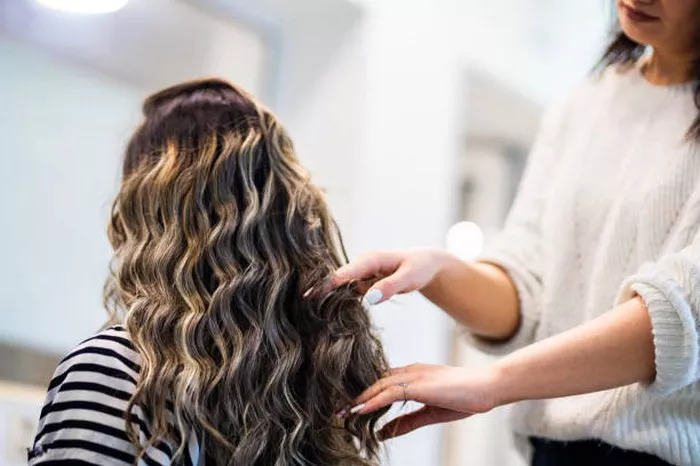A new investigation has raised significant concerns over the safety of synthetic hair products widely used in salons across the United States. According to a recent study conducted by Consumer Reports, harmful chemicals, including carcinogens and high levels of lead, were found in every one of the 10 most popular synthetic braids tested. The findings suggest that millions of women, especially those from Black communities, could be unknowingly exposing themselves to cancer-causing substances through the use of these products.
The study focused on synthetic hair used in braids, a hairstyle popular in Black culture that is worn by many for extended periods. While these hairstyles are typically more affordable than natural hair treatments, the synthetic materials used—often purchased at beauty supply stores or online—may pose severe health risks.
Cancer-causing chemicals such as benzene, methylene chloride, and chloroform were detected in all of the products tested. Benzene, in particular, is known for its link to blood cancers, while methylene chloride has been associated with liver and lung cancer in animals. The study also found that nine out of ten samples contained dangerously high levels of lead, a heavy metal that can cause serious health problems, particularly in children, who are more vulnerable to developmental issues.
Lead exposure, even at relatively low levels over time, is linked to brain and nervous system damage, as well as reproductive issues. This is a significant concern for the Black community, as it is the largest consumer group of hair wigs and extensions in the United States, a market valued at $2.79 billion. In fact, synthetic hair extensions are extremely popular among Black women, with 34 percent of them wearing braids with synthetic extensions in 2022.
Despite the popularity of synthetic hair, the market remains largely unregulated. The U.S. Food and Drug Administration (FDA) does not regulate hair products in the same way as lotions or makeup, leaving a vast gap in safety oversight. When approached for comment on the study’s findings, the FDA declined to provide any direct response, noting that other federal agencies may have jurisdiction over hair extension and wig products.
The Consumer Reports investigation found that several of the brands tested—such as Hbegant, Sensationnel, and Sassy Collection—contained lead levels far exceeding safety standards. For example, the Magic Fingers 3X Pre-Stretched Braiding Hair was found to have lead levels 603 percent above the acceptable limit, while the Sensationnel 100% Kanekalon Jumbo Braid contained lead levels 610 percent above the safety threshold.
These findings are particularly alarming given that many users wear synthetic braids for extended periods, from four to six weeks, which increases their exposure to toxic substances. The Consumer Reports team used rigorous testing methods to assess the volatile organic compounds (VOCs) and heavy metals in the products. VOCs, such as formaldehyde and acetone, can be released when the extensions are exposed to heat, creating a hazardous environment for both hair stylists and consumers.
While the testing showed that harmful chemicals are prevalent in many synthetic hair products, the report also pointed to the possibility of safer alternatives. Some products contained fewer VOCs and no detectable levels of lead, suggesting that healthier, non-toxic options are achievable. The study advocates for the use of non-toxic, plant-based dyes and low-VOC alternatives in the manufacturing of synthetic hair products.
Dr. James E. Rogers, the director of product safety testing at Consumer Reports, emphasized that consumers should be aware of the risks associated with synthetic hair products, particularly those with known carcinogens. He also noted that while no amount of lead exposure is considered safe, the chemicals found in these products are a concern for both adults and children.
Experts recommend that consumers carefully read product labels and check for any recalls before using hair extensions. If adverse reactions, such as skin rashes or irritation, occur, individuals are encouraged to report these to their healthcare provider and the FDA. Furthermore, researchers like Dr. Elissia Franklin from the Silent Spring Institute suggest that consumers opt for products that explicitly claim to use non-toxic ingredients, though she warns that such claims often go unregulated.
As the popularity of synthetic hair continues to rise, it remains crucial for both consumers and regulatory agencies to take action to ensure the safety of these widely used beauty products.


